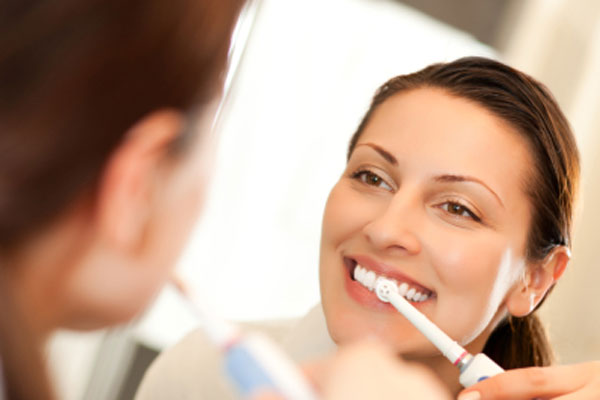Your mouth can tell you a whole lot about what’s happening in your body. Chatelaine’s Laurie Jennings stopped by to uncover eight warning signs to watch out for—and what you can do to fix them for good.
“Good oral care can add almost 7 years to your life,” Laurie Jennings says.
Your mouth is an indicator of all sorts of things from stress to vitamin deficiency to even fertility issues. Follow these tips to keep your oral hygiene in check:
Be sure to use CDA-approved mouth washes. Their active ingredients are clinically proven to kill odour-causing plaque and gingivitis germs.
Remember to rinse your mouth out after meals. 90 per cent of damage (like enamel erosion) happens 10 minutes after eating, so rinsing out your month, chewing sugar-free gum, or eating apples, carrots or celery will protect your enamel. Laurie says be sure to avoid bubbly drinks like sparkling water and energy drinks, and fluoride-gel treatments will also help to combat sensitivity.
Take note if gums are chronically inflamed. Flesh will be more red, less pink, and often it is because there may be inflammation in another of the body.
Dry mouth can cause cavities, because saliva’s not available to help protect tooth enamel and gum tissue. To combat that, sip water regularly or sleep with a humidifier in your room. If your mouth is still dry or you’re always thirsty, ask your doctor for a blood test to rule out hormone- or insulin-regulation issues.
Examine your mouth on a regular basis for anything out of the ordinary. Look inside (especially on the floor of the mouth and edges of the tongue) for white, red or speckled patches, lumps, changes in texture or swelling, and note if it’s suddenly difficult to chew or swallow.
Skipping out on flossing once you’re expecting is also problematic: It can put you and your baby at a higher risk of premature birth. That’s because inflamed gums can increase the body’s production of the chemical prostaglandin E2, which is also found in labour-inducing meds.
Tip: Rinse with salt water once or twice a week (1/4 tsp salt to one cup water), or pour hydrogen peroxide on your toothbrush, then sprinkle on baking soda, before brushing.

